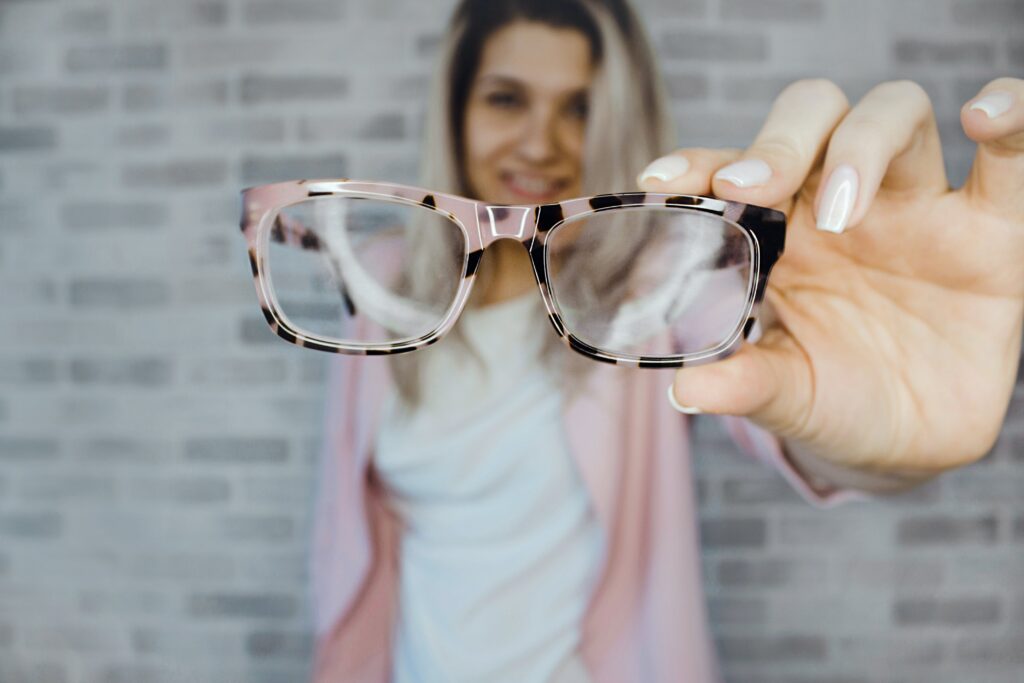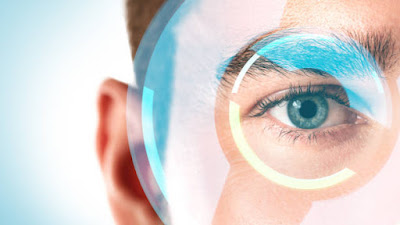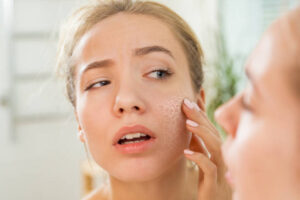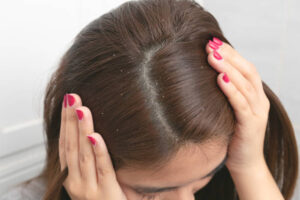Eye care routine
Table of Contents:
introduction
An eye care routine is a set of practices and habits aimed at maintaining the health and well-being of your eyes. This routine is essential for preserving good vision and preventing eye problems. It typically includes regular eye exams, protective measures against UV rays and eye strain, a balanced diet, proper hydration, and ensuring adequate sleep. By following a consistent eye care routine, you can reduce the risk of eye conditions and promote overall eye health.
Certainly! Here are six tips to create an essential eye care routine:
- Regular Eye Exams: Schedule annual eye exams with an optometrist or ophthalmologist to check your vision and screen for eye conditions.
- UV Protection: Wear sunglasses that block UVA and UVB rays to protect your eyes from harmful sun exposure.
- Eye-Friendly Diet: Consume a balanced diet rich in fruits and vegetables, especially those with nutrients like vitamin A, C, and E, which support eye health.
- Hydration: Stay well-hydrated to prevent dry eyes, and consider using lubricating eye drops if necessary.
- Good Sleep: Ensure you get enough quality sleep, as it’s crucial for overall eye health and reducing eye strain.
- Eyes Strain Management: Practice the 20-20-20 rule (take a 20-second break to look at something 20 feet away every 20 minutes) when working on screens, and maintain proper lighting and ergonomics.

Certainly, here are some extra tips to enhance your eye care routine:
- Digital Device Breaks: Take regular breaks from digital devices to reduce eye strain. Learn and follow the 20-20-20 rule, as mentioned earlier.
- Proper Lighting: Ensure good lighting when reading or working to minimize eye strain. Avoid glare and harsh lighting.
- Smoking Cessation: Quit smoking or avoid secondhand smoke, as smoking is linked to an increased risk of eye diseases.
- Eye Protection: Wear protective eyewear when engaging in activities that could lead to eye injury, such as sports or home improvement projects.
- Manage Allergies: If you have allergies, manage them effectively to reduce eye irritation and itching.
- Monitor Screen Settings: Adjust the brightness, contrast, and font size on your digital devices to make them more eye-friendly.
- Maintain a Healthy Weight: Obesity can contribute to conditions like diabetes, which can affect your eyes. Maintaining a healthy weight is beneficial for eye health.
- Avoid Rubbing Your Eyes: Refrain from rubbing your eyes to prevent the spread of germs and potential eye damage.
- Use Eye Protection at Work: If your job involves exposure to hazardous materials, ensure you use appropriate eye protection.
- Limit Alcohol: Excessive alcohol consumption can have a negative impact on your eyes. Limit your alcohol intake.
Remember that everyone’s eye care needs may vary, so it’s a good idea to consult with an eye care professional for personalized recommendations and guidance tailored to your specific situation.
Following these tips will help you establish a comprehensive eye care routine for maintaining healthy eyes.
An eye care routine is a set of practices and habits aimed at maintaining the health and well-being of your eyes. This routine is essential for preserving good vision and preventing eye problems. It typically includes regular eye exams, protective measures against UV rays and eye strain, a balanced diet, proper hydration, and ensuring adequate sleep. By following a consistent eye care routine, you can reduce the risk of eye conditions and promote overall eye health.
Certainly! Here are six tips to create an essential eye care routine:
- Regular Eye Exams: Schedule annual eye exams with an optometrist or ophthalmologist to check your vision and screen for eye conditions.
- UV Protection: Wear sunglasses that block UVA and UVB rays to protect your eyes from harmful sun exposure.
- Eye-Friendly Diet: Consume a balanced diet rich in fruits and vegetables, especially those with nutrients like vitamin A, C, and E, which support eye health.
- Hydration: Stay well-hydrated to prevent dry eyes, and consider using lubricating eye drops if necessary.
- Good Sleep: Ensure you get enough quality sleep, as it’s crucial for overall eye health and reducing eye strain.
- Eyes Strain Management: Practice the 20-20-20 rule (take a 20-second break to look at something 20 feet away every 20 minutes) when working on screens, and maintain proper lighting and ergonomics.
EXTRA TIPS TO ALWAYS FOLLOW:
Certainly, here are some extra tips to enhance your eye care routine:
- Digital Device Breaks: Take regular breaks from digital devices to reduce eye strain. Learn and follow the 20-20-20 rule, as mentioned earlier.
- Proper Lighting: Ensure good lighting when reading or working to minimize eye strain. Avoid glare and harsh lighting.
- Smoking Cessation: Quit smoking or avoid secondhand smoke, as smoking is linked to an increased risk of eye diseases.
- Eye Protection: Wear protective eyewear when engaging in activities that could lead to eye injury, such as sports or home improvement projects.
- Manage Allergies: If you have allergies, manage them effectively to reduce eye irritation and itching.
- Monitor Screen Settings: Adjust the brightness, contrast, and font size on your digital devices to make them more eye-friendly.
- Maintain a Healthy Weight: Obesity can contribute to conditions like diabetes, which can affect your eyes. Maintaining a healthy weight is beneficial for eye health.
- Avoid Rubbing Your Eyes: Refrain from rubbing your eyes to prevent the spread of germs and potential eye damage.
- Use Eye Protection at Work: If your job involves exposure to hazardous materials, ensure you use appropriate eye protection.
- Limit Alcohol: Excessive alcohol consumption can have a negative impact on your eyes. Limit your alcohol intake.
Remember that everyone’s eye care needs may vary, so it’s a good idea to consult with an eye care professional for personalized recommendations and guidance tailored to your specific situation.
Following these tips will help you establish a comprehensive eye care routine for maintaining healthy eyes.
6 TIPS TO CREATE AN ESSENTIAL EYE CARE ROUTINE!
An eye care routine is a set of practices and habits aimed at maintaining the health and well-being of your eyes. This routine is essential for preserving good vision and preventing eye problems. It typically includes regular eye exams, protective measures against UV rays and eye strain, a balanced diet, proper hydration, and ensuring adequate sleep. By following a consistent eye care routine, you can reduce the risk of eye conditions and promote overall eye health.
Certainly! Here are six tips to create an essential eye care routine:
- Regular Eye Exams: Schedule annual eye exams with an optometrist or ophthalmologist to check your vision and screen for eye conditions.
- UV Protection: Wear sunglasses that block UVA and UVB rays to protect your eyes from harmful sun exposure.
- Eye-Friendly Diet: Consume a balanced diet rich in fruits and vegetables, especially those with nutrients like vitamin A, C, and E, which support eye health.
- Hydration: Stay well-hydrated to prevent dry eyes, and consider using lubricating eye drops if necessary.
- Good Sleep: Ensure you get enough quality sleep, as it’s crucial for overall eye health and reducing eye strain.
- Eyes Strain Management: Practice the 20-20-20 rule (take a 20-second break to look at something 20 feet away every 20 minutes) when working on screens, and maintain proper lighting and ergonomics.
EXTRA TIPS TO ALWAYS FOLLOW:
Certainly, here are some extra tips to enhance your eye care routine:
- Digital Device Breaks: Take regular breaks from digital devices to reduce eye strain. Learn and follow the 20-20-20 rule, as mentioned earlier.
- Proper Lighting: Ensure good lighting when reading or working to minimize eye strain. Avoid glare and harsh lighting.
- Smoking Cessation: Quit smoking or avoid secondhand smoke, as smoking is linked to an increased risk of eye diseases.
- Eye Protection: Wear protective eyewear when engaging in activities that could lead to eye injury, such as sports or home improvement projects.
- Manage Allergies: If you have allergies, manage them effectively to reduce eye irritation and itching.
- Monitor Screen Settings: Adjust the brightness, contrast, and font size on your digital devices to make them more eye-friendly.
- Maintain a Healthy Weight: Obesity can contribute to conditions like diabetes, which can affect your eyes. Maintaining a healthy weight is beneficial for eye health.
- Avoid Rubbing Your Eyes: Refrain from rubbing your eyes to prevent the spread of germs and potential eye damage.
- Use Eye Protection at Work: If your job involves exposure to hazardous materials, ensure you use appropriate eye protection.
- Limit Alcohol: Excessive alcohol consumption can have a negative impact on your eyes. Limit your alcohol intake.
Remember that everyone’s eye care needs may vary, so it’s a good idea to consult with an eye care professional for personalized recommendations and guidance tailored to your specific situation.
Following these tips will help you establish a comprehensive eye care routine for maintaining healthy eyes.
overview
An eye care routine is a set of practices and habits aimed at maintaining the health and well-being of your eyes. This routine is essential for preserving good vision and preventing eye problems. It typically includes regular eye exams, protective measures against UV rays and eye strain, a balanced diet, proper hydration, and ensuring adequate sleep. By following a consistent eye care routine, you can reduce the risk of eye conditions and promote overall eye health.
Certainly! Here are six tips to create an essential eye care routine:
- Regular Eye Exams: Schedule annual eye exams with an optometrist or ophthalmologist to check your vision and screen for eye conditions.
- UV Protection: Wear sunglasses that block UVA and UVB rays to protect your eyes from harmful sun exposure.
- Eye-Friendly Diet: Consume a balanced diet rich in fruits and vegetables, especially those with nutrients like vitamin A, C, and E, which support eye health.
- Hydration: Stay well-hydrated to prevent dry eyes, and consider using lubricating eye drops if necessary.
- Good Sleep: Ensure you get enough quality sleep, as it’s crucial for overall eye health and reducing eye strain.
- Eyes Strain Management: Practice the 20-20-20 rule (take a 20-second break to look at something 20 feet away every 20 minutes) when working on screens, and maintain proper lighting and ergonomics.
EXTRA TIPS TO ALWAYS FOLLOW:
Certainly, here are some extra tips to enhance your eye care routine:
- Digital Device Breaks: Take regular breaks from digital devices to reduce eye strain. Learn and follow the 20-20-20 rule, as mentioned earlier.
- Proper Lighting: Ensure good lighting when reading or working to minimize eye strain. Avoid glare and harsh lighting.
- Smoking Cessation: Quit smoking or avoid secondhand smoke, as smoking is linked to an increased risk of eye diseases.
- Eye Protection: Wear protective eyewear when engaging in activities that could lead to eye injury, such as sports or home improvement projects.
- Manage Allergies: If you have allergies, manage them effectively to reduce eye irritation and itching.
- Monitor Screen Settings: Adjust the brightness, contrast, and font size on your digital devices to make them more eye-friendly.
- Maintain a Healthy Weight: Obesity can contribute to conditions like diabetes, which can affect your eyes. Maintaining a healthy weight is beneficial for eye health.
- Avoid Rubbing Your Eyes: Refrain from rubbing your eyes to prevent the spread of germs and potential eye damage.
- Use Eye Protection at Work: If your job involves exposure to hazardous materials, ensure you use appropriate eye protection.
- Limit Alcohol: Excessive alcohol consumption can have a negative impact on your eyes. Limit your alcohol intake.
conclusion
Remember that everyone’s eye care needs may vary, so it’s a good idea to consult with an eye care professional for personalized recommendations and guidance tailored to your specific situation.
Following these tips will help you establish a comprehensive eye care routine for maintaining healthy eyes.






Pingback: depressive disorder, symptoms, prevention, and treatment.